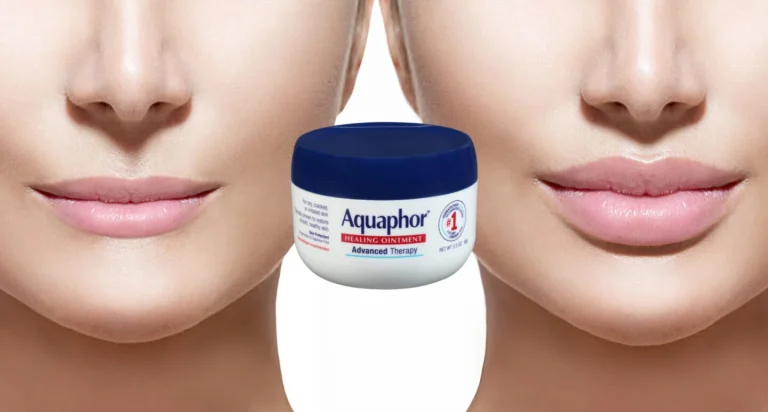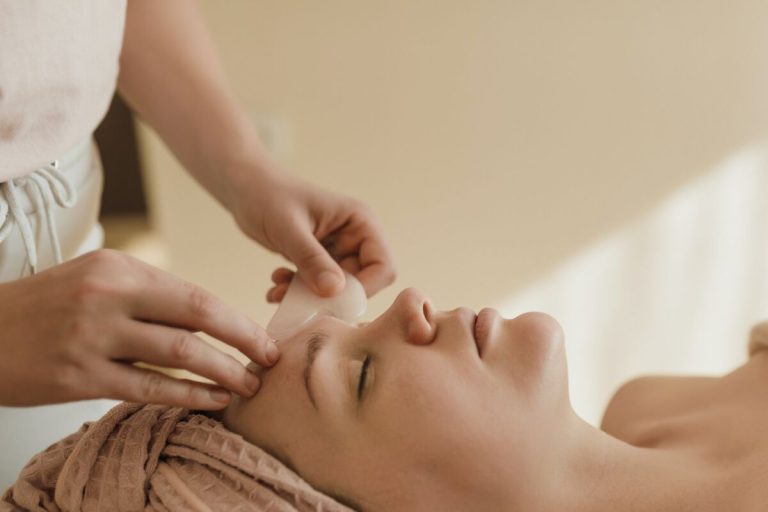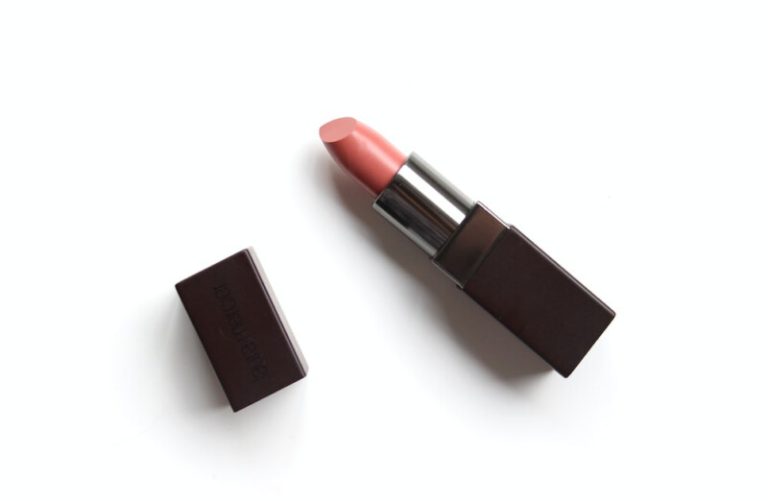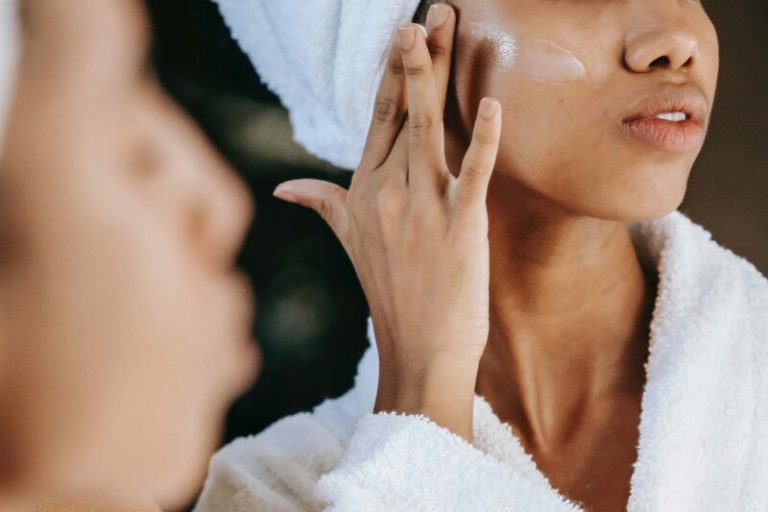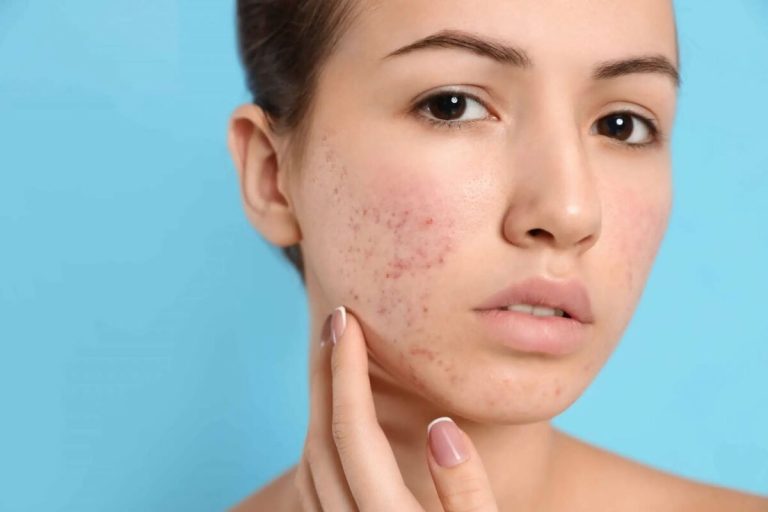Is Hyaluronic Acid Good for Acne? The Ultimate Guide
Hyaluronic acid has become one of the most talked about ingredients in skincare. As someone who struggles with acne, I often find myself wondering if hyaluronic acid could actually help my breakouts. In this article, I’ll explore the evidence behind using hyaluronic acid for acne prone skin.
What is Hyaluronic Acid?
Contents
- What is Hyaluronic Acid?
- Does Hyaluronic Acid Help Acne?
- Other Skin Benefits of Hyaluronic Acid
- Is Hyaluronic Acid Good for Acne Scars?
- Can Hyaluronic Acid Cause Acne?
- Can Hyaluronic Acid Cause Purging?
- Potential Side Effects of Using Hyaluronic Acid
- How to Use Hyaluronic Acid for Acne
- The Bottom Line: Is Hyaluronic Acid Good for Acne?
Hyaluronic acid is a humectant, meaning it retains moisture in the skin. It has an incredible ability to attract and bind water molecules, making it an ideal ingredient for drier skin types.
Naturally, hyaluronic acid occurs in our bodies and is found in large concentrations in the skin, joints, and eyes. It acts as a cushioning and lubricating agent in our joints and gives volume and shape to our skin.
As we age, our bodies produce less hyaluronic acid resulting in drier skin, wrinkles and sagging. By applying it topically, we can combat these signs of aging and hydrate the skin.
Key benefits of hyaluronic acid:
- Attracts and binds moisture
- Plumps fine lines and wrinkles
- Suitable for dehydrated and mature skin
- Reduces appearance of pores
- Improves texture
With all these hydrating and plumping properties, could hyaluronic acid also help acne?
Does Hyaluronic Acid Help Acne?
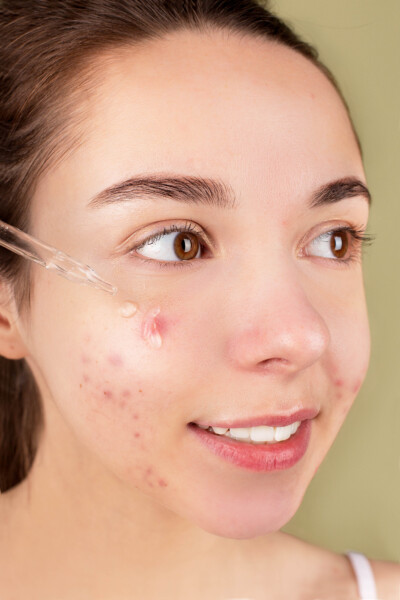
Hydration is key for all skin types, including acne-prone skin. When our skin lacks water, it can actually overcompensate by producing even more oil, leading to clogged pores and breakouts.
By applying hyaluronic acid to the skin, it helps lock in moisture and prevents the overproduction of oil and sebum. This restores the skin’s natural balance and reduces acne.
It’s especially important for those using acne medication like retinoids to counteract the increased dryness and irritation. Hyaluronic acid supplements the skin with much needed hydration.
The hydrating properties also aid in healing and reduce the appearance of acne scars by improving skin texture. Overall, hyaluronic acid plays a supporting role in getting breakouts under control.
Other Skin Benefits of Hyaluronic Acid
In addition to hydration, hyaluronic acid provides other benefits for acne-prone skin:
- Soothes inflammation and redness
- Strengthens the skin barrier
- Stimulates production of collagen
- Evens skin tone
- Assists in healing of breakouts
By calming irritation, reducing redness and improving skin health, hyaluronic acid tackles some of the key symptoms of acne.
Is Hyaluronic Acid Good for Acne Scars?
There’s limited research looking specifically at hyaluronic acid for acne scarring. However, some studies have shown positive results when combining hyaluronic acid injections with laser treatments for scarring.
While hyaluronic acid alone may not completely eliminate indented scars, it supports overall skin health and helps maintain a strong barrier. This can aid in preventing the worsening of scars over time.
Can Hyaluronic Acid Cause Acne?
Like any skincare ingredient, some individuals may experience breakouts from hyaluronic acid. It’s impossible to know for sure without trying it yourself.
I recommend patch testing hyaluronic acid on a small area first to check for any adverse effects. Start with a lower concentration and monitor closely when applying to the full face.
Factors that may contribute to acne include the specific formulation, concentration, and whether it’s comedogenic. Oil-based hyaluronic acid products are more likely to clog pores.
Can Hyaluronic Acid Cause Purging?
Purging is a reaction that happens when using active ingredients like retinoids, alpha hydroxy acids, and other exfoliants. Since hyaluronic acid is not an active and does not increase cell turnover, purging is very unlikely.
Breakouts could still occur though if the product is unsuitable for your skin or interacting with other acne-triggering ingredients. Always check the full list of ingredients for potential pore-cloggers.
Potential Side Effects of Using Hyaluronic Acid
While generally well-tolerated, here are some potential side effects to look out for with hyaluronic acid:
- Acne from comedogenic ingredients like lanolin or silicone
- Irritation from essential oils, dyes, or fragrances
- Clogged pores from heavy creams or oils
- Redness and dryness from high concentrations of hyaluronic acid
- Sensitivity reactions in some individuals
Carefully inspect the ingredient list and perform a patch test before applying any hyaluronic acid product extensively. Start slowly with a thin layer.
How to Use Hyaluronic Acid for Acne
If you want to give hyaluronic acid a try, here are some tips:
- Spot test first for any negative reactions.
- Start with a low concentration around 1% and build up gradually.
- Look for oil-free, non-comedogenic formulas suitable for acne-prone skin.
- Apply a thin layer to clean, damp skin and allow it to fully absorb.
- Use once or twice daily, ideally after cleansing and before heavier creams.
- Combine with other acne-fighting ingredients like salicylic acid or benzoyl peroxide.
Some recommended options:
- The Ordinary Hyaluronic Acid 2% + B5 – hydrating and soothing
- Inkey List Hyaluronic Acid – affordable simple serum
- Isntree Hyaluronic Acid Toner – hydrating toner with no oils
- Peter Thomas Roth Water Drench Hyaluronic Cloud Cream – oil-free moisturizer
- Neutrogena Hydro Boost – contains hyaluronic acid and glycerin
Take care not to over-apply. Hyaluronic acid works best when sealed in with a lightweight moisturizer.
The Bottom Line: Is Hyaluronic Acid Good for Acne?
Hyaluronic acid is an impressive multi-tasker that deeply hydrates while also calming inflammation. For some acne-prone individuals, these properties may offer real benefits.
However, skin can react uniquely to ingredients so results really depend on the specific products used and your own sensitivities. It may take some trial and error to find the right balance.
While not a standalone acne treatment, hyaluronic acid can certainly support skin health and healing. When used properly, it provides hydration without clogging pores or causing excess oiliness.
If you have acne-prone skin, incorporate hyaluronic acid as part of a regular routine focused on gentle cleansing, moisture balance, and proven acne fighters. With the right combination, you may just find it improves the look and feel of your skin.

Founded by Sophia Rodriguez, IGXO Cosmetics is a PETA-certified, cruelty-free, and vegan makeup brand.
